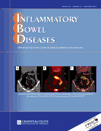RDP58 is a novel and potentially effective oral therapy for ulcerative colitis
Abstract
Background: RDP58 is a novel anti-inflammatory d-amino acid decapeptide that inhibits synthesis of proinflammatory cytokines by disrupting cell signaling at the pre-MAPK MyD88-IRAK-TRAF6 protein complex. We therefore evaluated its efficacy and safety in parallel multicenter, double-blind, randomized concept studies in ulcerative colitis (UC).
Methods: In the first trial, 34 patients with mild to moderate active UC were randomized (1:2) to placebo (n = 13) or RDP58 100 mg (n = 21). In the second trial, 93 similar patients were randomized (1:1:1) to placebo (n = 30) RDP58 200 mg (n = 31), or RDP 300 mg (n = 32). In both studies, treatment success was defined as a simple clinical colitis activity index score of no more than 3 at 28 days. Sigmoidoscopy and rectal biopsy (at baseline and 28 days) and safety measures (baseline and 28 and 56 days) were other endpoints.
Results: Treatment success on RDP 100 mg was 29% versus 46% on placebo (P = 0.46). There were no significant differences in sigmoidoscopy or histology score. In the second study, treatment success on the higher doses of RDP58 (200 and 300 mg) was 71% and 72%, respectively, versus 43% on placebo (P = 0.016). Improvements in sigmoidoscopy scores (41% on 200 mg and 46% on 300 mg versus 32% on placebo) did not reach significance, but histology scores improved significantly (P = 0.002) versus placebo. Overall, adverse events were no different between placebo (3.3 ± 2.4) and RDP58 (2.7 ± 1.4, 300-mg group).
Conclusions: RDP58 at a dose of 200 or 300 mg, but not 100 mg, was effective in mild-to-moderate UC. RDP58 was safe and well tolerated, and its novel action makes it an attractive potential therapy.




